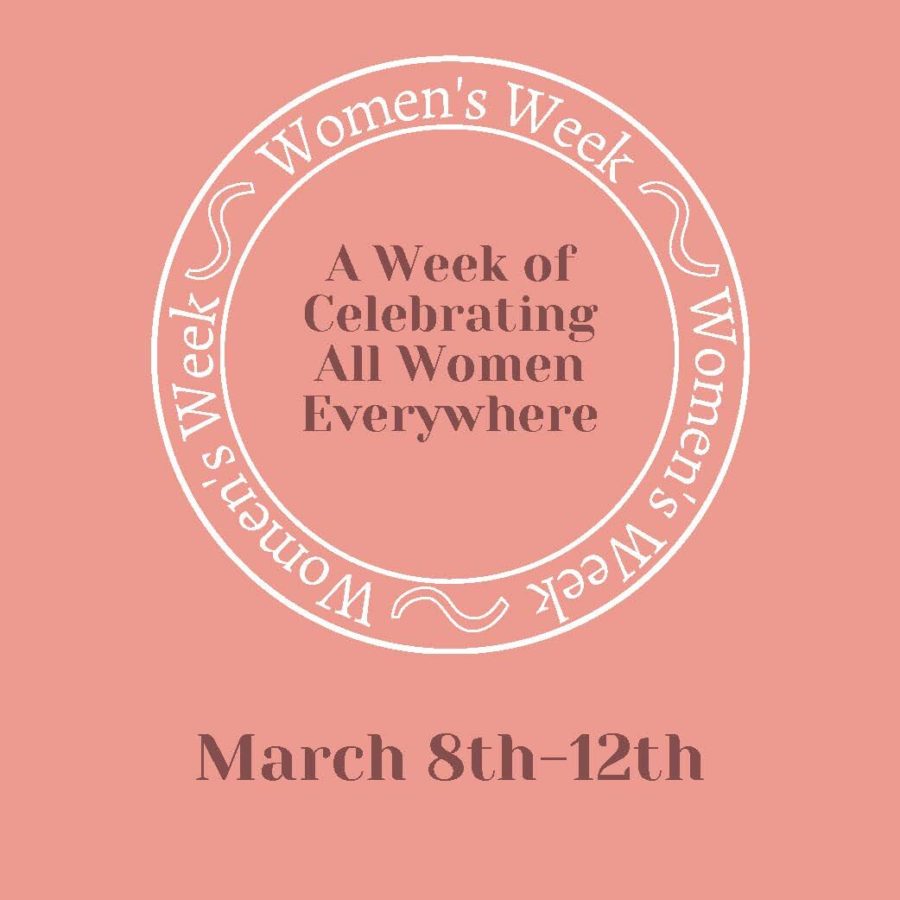Violence Against Women, Women’s Health panel convenes for Women’s Week Conference
Student Government hosted four Iowa State faculty members for the Violence Against Women and Women’s Health panel Tuesday.
March 9, 2021
Content warning: The following article discusses abuse and violence toward women.
The Violence Against Women and Women’s Health panel took place as part of Student Government’s Women’s Week Conference.
Moderator Sophie Young, director of health and wellness for Student Government and senior in microbiology, asked a series of questions pertaining to women’s issues on and off of Iowa State campus. The panelists were four Iowa State staff members: Margo Foreman, Adrienne Lyles, Alissa Stoehr and Emily Miller.
Lyles, associate director of equal opportunity and senior deputy Title IX coordinator, said along with the ongoing “legislative assault on women’s bodies,” the COVID-19 pandemic has intensified women’s struggles with violence, proper health care and pressures of being expected to be the main caretaker of their children.
“COVID has created a ‘shadow pandemic’ for women … so for me, what’s most present are these [struggles that] have always been there, but they’re magnified and really exposed because of COVID,” Lyles said.
Stoehr, assistant teaching professor of sociology, added to Lyle’s statements by acknowledging that while all groups of people have struggled because of the pandemic, the effects of systems and aspects of society contributing to the oppression of women are heightened.
“When we already have [the existence of the] patriarchy within our society, when we already have gender inequality and gender inequity in our society, [they are] certainly going to be heightened when we’re in the middle of a pandemic,” Stoehr said.
Young asked the panelists if they had noticed any trend of sexual misconduct on or off of Iowa State campus. Miller, health promotion coordinator for Green Dot and sexual health, said there is a growing trend of teaching women how to protect themselves and avoid dangerous situations but not enough emphasis on educating potential bystanders on how to intervene if they witness sexual misconduct.
Stoehr added that politics tends to be a large part in who is held accountable in instances of sexual misconduct. She also said there is a disparity in types of punishment for abusers in the criminal justice system depending on their race.
Foreman, assistant vice president equal opportunity, said there is not enough of an expectation for men to contribute to the issue of violence against women.
“The trend that bothers me … is how men’s responsibility and their [lack of] energy toward fixing the problem is still not being called out as much as it probably should be,” Foreman said.
Lyles spoke about how straight, cisgender, white women have co-opted the #MeToo movement, leaving marginalized groups with less room to speak about their experiences in public discourse.
“It’s a bind — we’re talking about [sexual misconduct] more, but we’re not hearing all the voices, and there are these social pressures and forces that are even weightier against our most vulnerable populations,” Lyles said.
Young also asked the panelists about the relationship between power and sexual misconduct and whether they think there are enough measures taken to hold abusers accountable. Foreman said in her opinion, whatever punishment abusers receive is usually incomparable to the pain they caused the victim.
“The responsibility that the perpetrator should have — their atonement and their accountability has always been, and is still, grossly lacking,” Foreman said. “Even if someone is given a severe [punishment], it still is not equitable to the trauma and pain that the victim has to deal with on his or her own throughout their lifetime.”
Lyles said it is impossible to talk about violence against women without talking about it on a systemic level.
“Oppression, hegemony, misogyny and patriarchy are systems of interrelated forces, barriers and shared understandings that create the context that promotes sexual violence against women and against vulnerable folks, … enabling the power dynamics that foster the violence,” Lyles said.
On the other hand, Miller said it is important to also talk about abuses of power that happen on a seemingly smaller level, like romantic relationships.
“This power control can look ‘smaller,’ too … gaslighting, manipulation, emotional abuse, isolation, threats, coercion — … these things that might feel day-to-day, small or insignificant stack on top of each other to create this culture [of appropriating violence and abuse],” Miller said.







